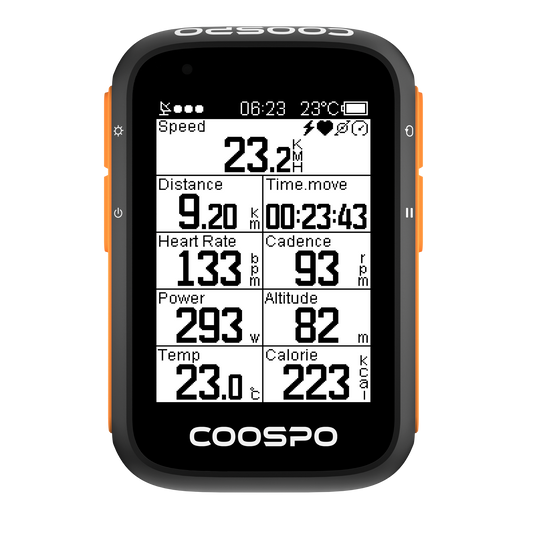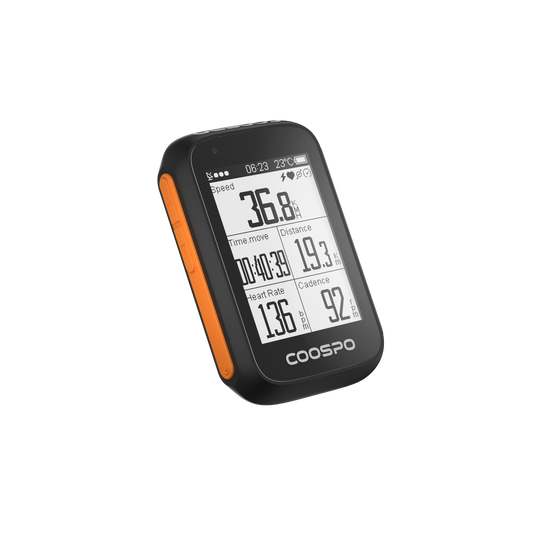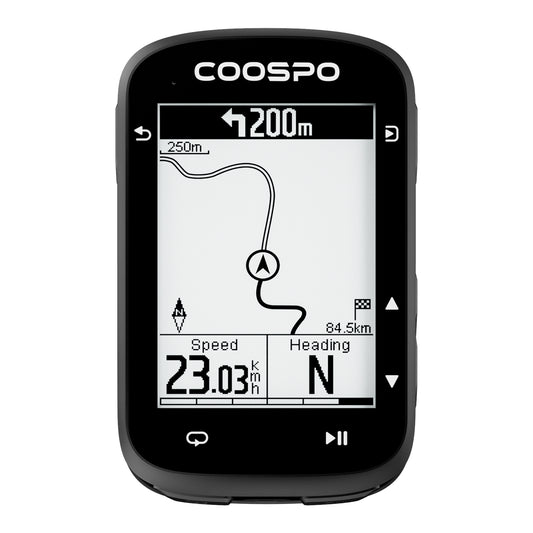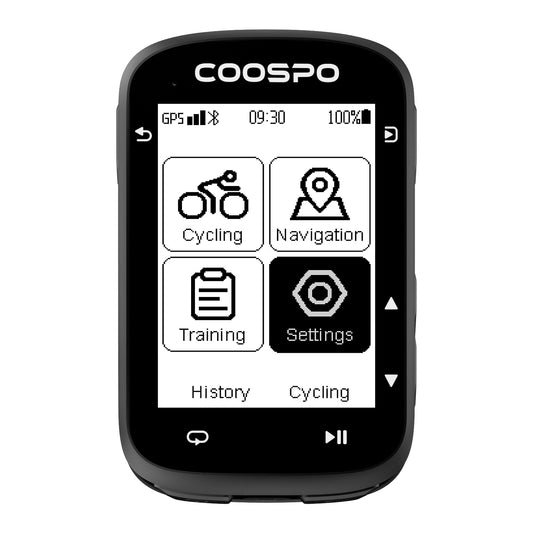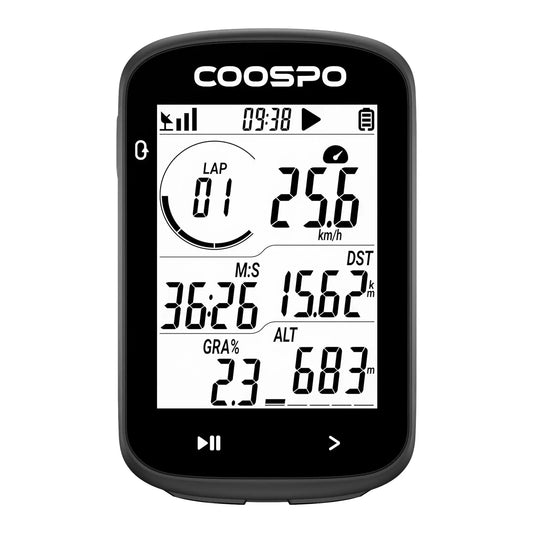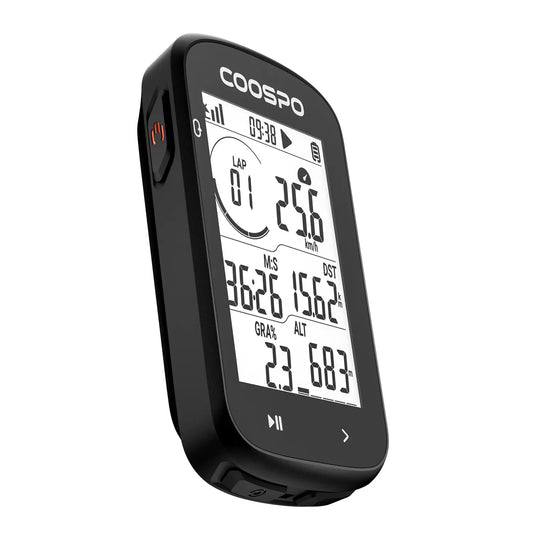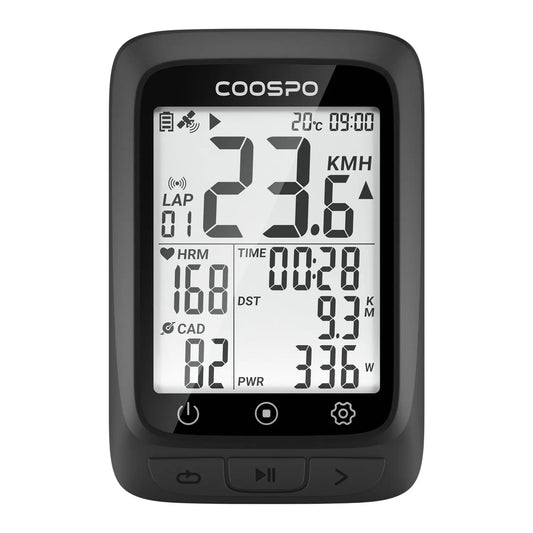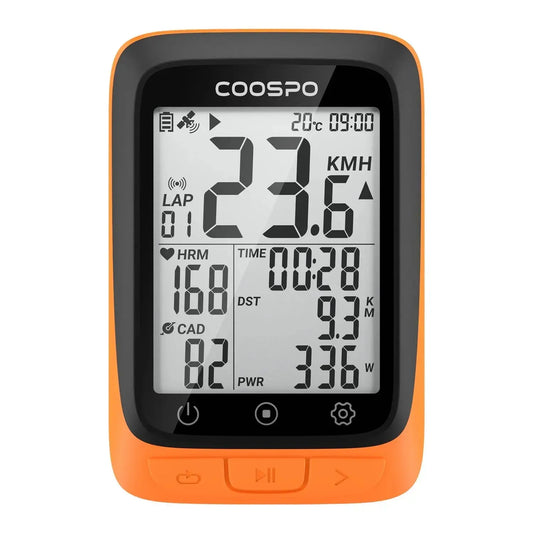Pourquoi la formation du moniteur de fréquence cardiaque est importante pour l'entraînement ?
Dans un monde de fitness en constante évolution, les gens sont toujours à la recherche de moyens efficaces et efficients pour optimiser leurs séances d'entraînement. L'une des approches qui gagne en popularité est l'entraînement avec moniteur de fréquence cardiaque.
En utilisant les données de fréquence cardiaque en temps réel pendant vos séances d'entraînement, vous pouvez voir instantanément comment votre corps réagit. Cela vous permet de vous entraîner plus intelligemment plutôt que de vous entraîner plus intensément. Dans cet article, nous allons explorer les différents types d'entraînement de fréquence cardiaque et leurs avantages.
FRÉQUENCE CARDIAQUE ET INTENSITÉ DE L'EXERCICE
Surveiller votre fréquence cardiaque est un moyen fiable de mesurer l'intensité de vos efforts pendant l'exercice. Votre fréquence cardiaque augmente à mesure que vous travaillez plus, ce qui montre que votre cœur travaille également plus fort. Elle est mesurée en battements par minute (BPM) et peut vous indiquer l'effort fourni par votre corps. En surveillant votre fréquence cardiaque, vous pouvez ajuster votre entraînement pour vous assurer d'atteindre vos objectifs de remise en forme.
L'entraînement sportif s'articule autour de trois facteurs clés :
Fréquence:Cela fait référence à la fréquence à laquelle vous faites de l’exercice dans une période donnée, généralement mesurée en séances par semaine.
Durée:Cela concerne simplement la durée pendant laquelle vous faites de l’exercice pendant chaque séance, généralement mesurée en minutes.
Intensité:Ce facteur est un peu compliqué car il s'agit de déterminer l'intensité de votre effort pendant votre entraînement. Il est important de surveiller votre fréquence cardiaque pour cela.
Le suivi de votre fréquence cardiaque vous donne une idée claire de l'intensité de votre entraînement. C'est pourquoi le Coospo moniteur de fréquence cardiaque est un moyen fiable de voir à quel point votre corps travaille, au lieu de simplement deviner.

AVANTAGES DE L'ENTRAINEMENT DE LA FRÉQUENCE CARDIAQUE
Le suivi de votre fréquence cardiaque présente de nombreux avantages. Il peut vous aider à améliorer votre santé et vos performances. L'entraînement à la fréquence cardiaque vous aide à tirer le meilleur parti de vos séances d'entraînement, vous pouvez donc être sûr que chaque minute passée à faire de l'exercice fait une différence.
Précision dans les zones d'entraînement :
En utilisant un moniteur de fréquence cardiaque Pendant l'entraînement, la précision aide les individus à identifier et à maintenir les zones d'entraînement appropriées. Ces zones comprennent les seuils aérobies et anaérobies. Cette précision garantit que les séances d'entraînement correspondent aux niveaux de forme physique individuels, rendant chaque séance plus efficace.
Commentaires en temps réel:
L'entraînement par fréquence cardiaque vous donne un retour d'information en temps réel afin que vous puissiez ajuster l'intensité de votre entraînement selon vos besoins. moniteur de fréquence cardiaque vous aide à apporter des changements rapides pour atteindre vos objectifs de remise en forme, que vous travailliez trop dur ou pas assez.
Le moniteur de fréquence cardiaque Coospo peut fournir des données précises sur la fréquence cardiaque en temps réel pendant que vous courez, faites du vélo ou effectuez d'autres exercices d'aérobic. Les données en temps réel peuvent également vous aider à faire passer vos performances au niveau supérieur en vous montrant où et ce que vous pouvez améliorer.
Éviter le surentraînement:
Faire trop d'efforts et s'entraîner trop vite ne donne pas toujours les meilleurs résultats. En fait, cela peut vous fatiguer, vous épuiser ou même vous blesser. C'est là qu'intervient la surveillance de la fréquence cardiaque : elle vous aide à trouver le bon équilibre entre l'effort et le repos, afin de ne pas en faire trop.
Un bon programme d'entraînement doit inclure différentes séances d'entraînement, avec suffisamment de temps pour se reposer et récupérer entre elles. Cela signifie faire des séances courtes et longues, ainsi que mélanger des séances difficiles avec des séances plus faciles. Un mélange de séances d'entraînement différentes et suffisamment de repos vous aidera à améliorer vos performances.
QU'EST-CE QUE L'ENTRAINEMENT À FAIBLE FRÉQUENCE CARDIAQUE ?
L’entraînement à faible fréquence cardiaque est souvent utilisé dans les exercices d’endurance pour aider à améliorer la santé cardiaque globale.Cela signifie maintenir votre rythme cardiaque modéré pendant un certain temps pour améliorer votre capacité aérobique sans risque de surentraînement.
L'idée est que si vous vous entraînez régulièrement à une fréquence cardiaque basse, vous pouvez améliorer votre vitesse sans trop solliciter votre corps. Cela implique généralement de commencer à un rythme lent et d'augmenter progressivement votre vitesse au fil du temps.
AVANTAGES DE L'ENTRAINEMENT À FAIBLE FRÉQUENCE CARDIAQUE
L'entraînement à faible fréquence cardiaque peut sembler difficile au début pour ceux qui sont habitués à des rythmes plus rapides, mais il offre de grands avantages à long terme. Avec le temps, vous constaterez des améliorations telles qu'une endurance accrue et de meilleures performances globales :
- Maintenez une fréquence cardiaque basse tout en courant à une vitesse proche de celle de votre course.
- Réduisez le risque de tension, de maladie ou de blessures mineures dues au surentraînement.
- Minimisez la fatigue après la course.
- Maintenir un niveau de performance plus constant.
- Gérez votre poids corporel et améliorez votre composition corporelle globale.
QU'EST-CE QUE LE HIIT ?
L'entraînement par intervalles à haute intensité (HIIT) consiste à effectuer de courtes périodes d'exercices intenses suivies de périodes de repos ou d'exercices de faible intensité. Cette méthode d'entraînement comprend généralement des exercices rapides et à haute intensité qui augmentent votre rythme cardiaque, avec de courtes pauses entre les deux. Le HIIT peut être pratiqué avec des activités comme la course à pied et le vélo.
Le HIIT est un moyen rapide et efficace d’améliorer la santé du cœur et du métabolisme, selon le Dr Martin Gibala, un chercheur de premier plan dans le domaine.
De nombreuses personnes aiment ajouter des séances de HIIT à leur programme d'entraînement, car c'est un moyen rapide de voir des résultats sans passer beaucoup de temps à s'entraîner. Un entraînement HIIT complet, y compris l'échauffement, ne devrait prendre qu'une demi-heure environ.
Lorsque vous commencez à pratiquer le HIIT, effectuez simplement une séance d'entraînement intense par semaine. Au fur et à mesure que vous vous améliorez, vous pouvez ajouter davantage de séances de HIIT à votre routine.
AVANTAGES DU HIIT
Brûlage efficace des calories :
Les intervalles à haute intensité font battre votre cœur plus vite, ce qui vous permet de brûler plus de calories pendant et après l'entraînement. C'est ce qu'on appelle l'effet Afterburn. Dans une étude publiée dans le Journal of Obesity, les chercheurs ont découvert que le HIIT entraînait une perte de graisse corporelle plus importante que l'exercice régulier d'intensité modérée.
Efficacité temporelle :
Les séances d’entraînement HIIT sont courtes mais donnent des résultats similaires ou meilleurs que les séances d’entraînement plus longues et d’intensité modérée. Elles sont donc parfaites pour les personnes occupées. Le Dr Jamie Timmons, professeur de médecine de précision, affirme que le HIIT permet de gagner du temps. Vous pouvez obtenir les mêmes résultats en quelques minutes, ce qui prendrait beaucoup plus de temps avec un rythme continu et modéré.
Autres avantages :
- Endurance améliorée.
- Aide à brûler les graisses et à développer la masse musculaire maigre.
- Augmente le métabolisme jusqu’à 48 heures après l’exercice, pendant que le corps récupère du besoin accru en oxygène.
L'entraînement avec moniteur de fréquence cardiaque offre un moyen personnalisé d'atteindre vos objectifs de remise en forme. En utilisant le moniteur de fréquence cardiaque Coospo, vous pouvez suivre vos séances d'entraînement et l'intensité de vos exercices.
La surveillance de la fréquence cardiaque aide à améliorer la condition physique en vous guidant vers une meilleure capacité aérobique, une meilleure gestion du poids et une meilleure santé cardiovasculaire.
Si vous souhaitez en savoir plus sur la zone de fréquence cardiaque, veuillez lire cet article :
https://www.coospo.com/blogs/knowledge/what-are-the-five-heart-rate-zones




